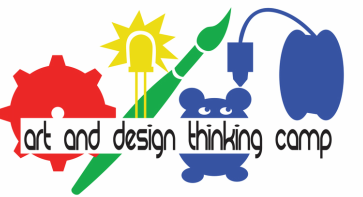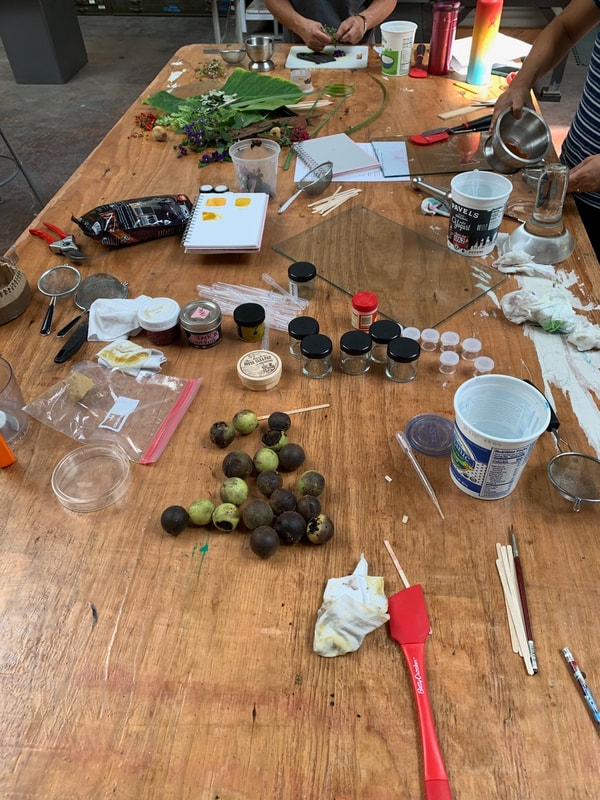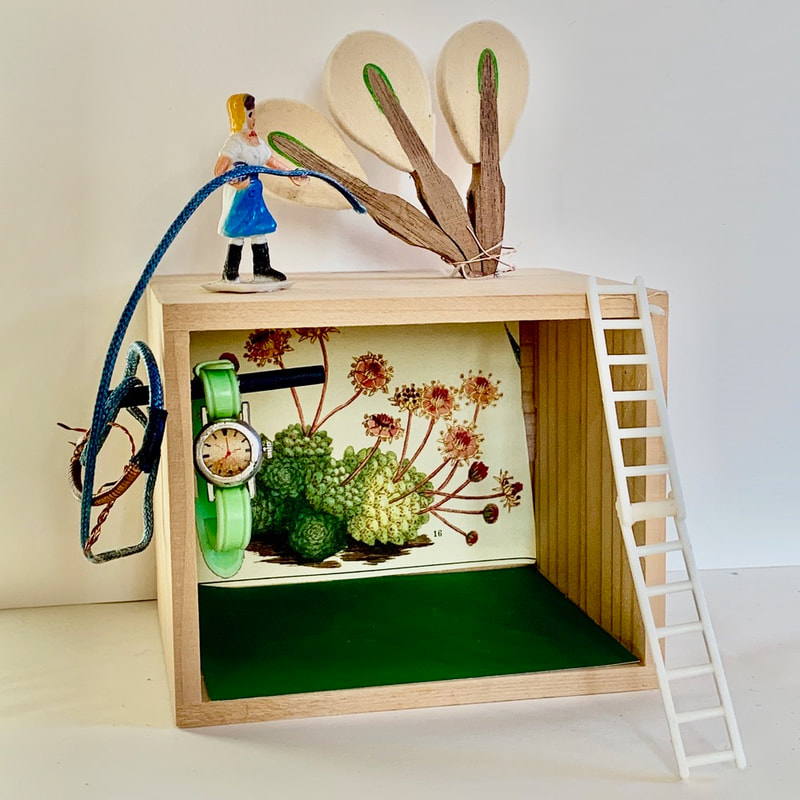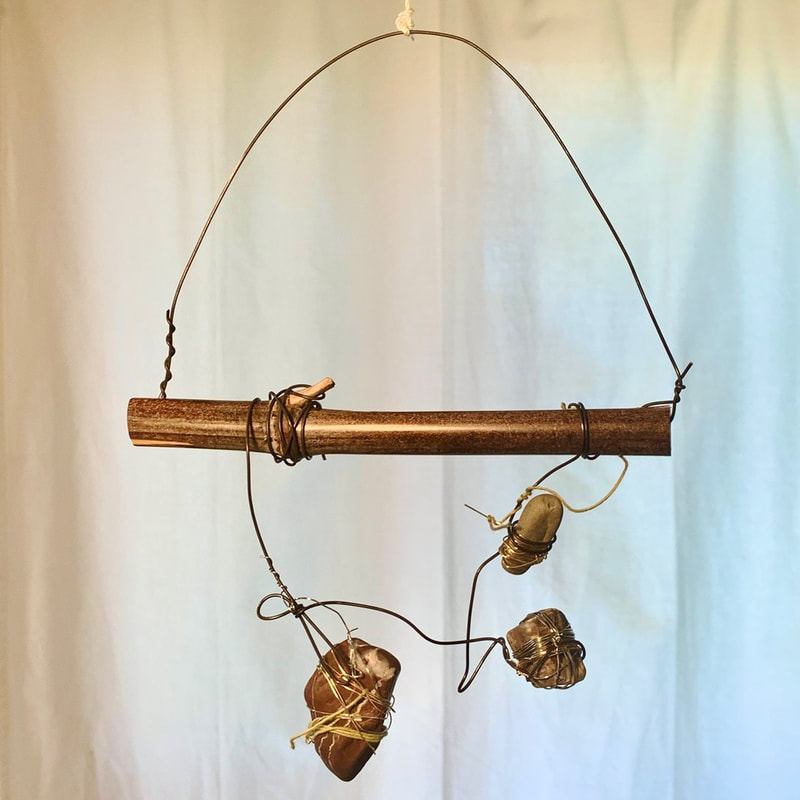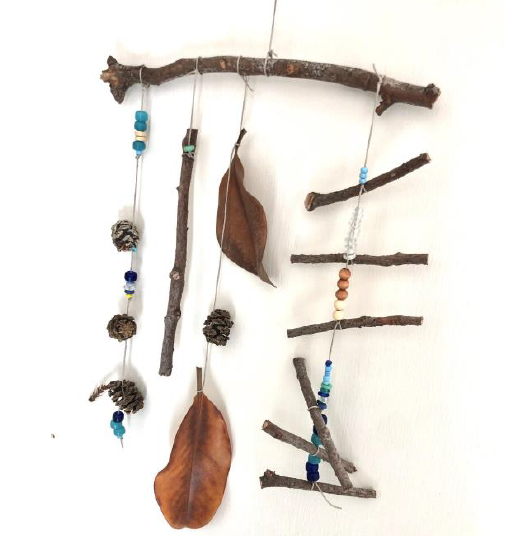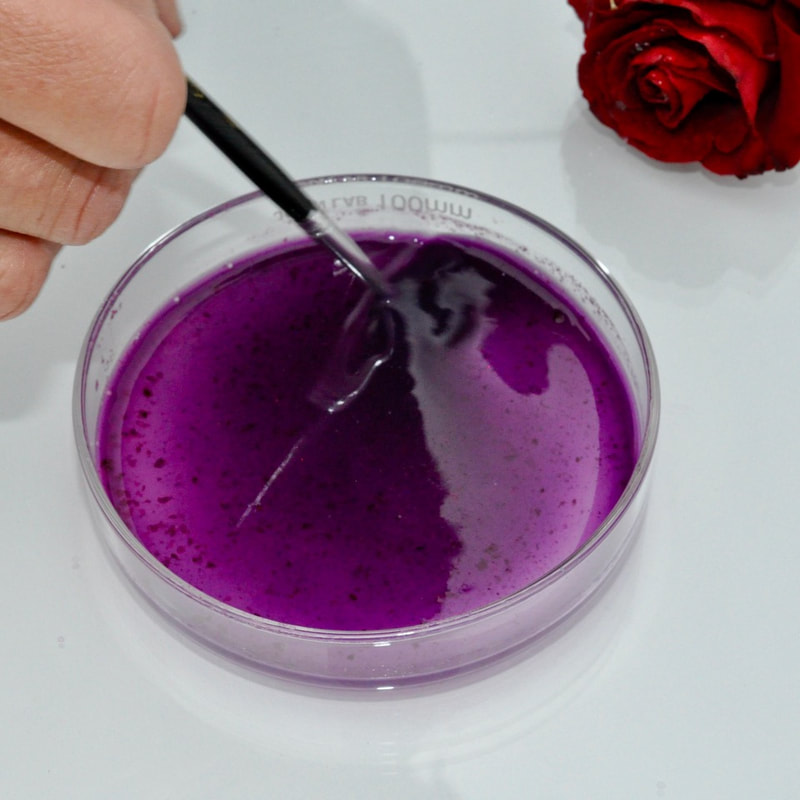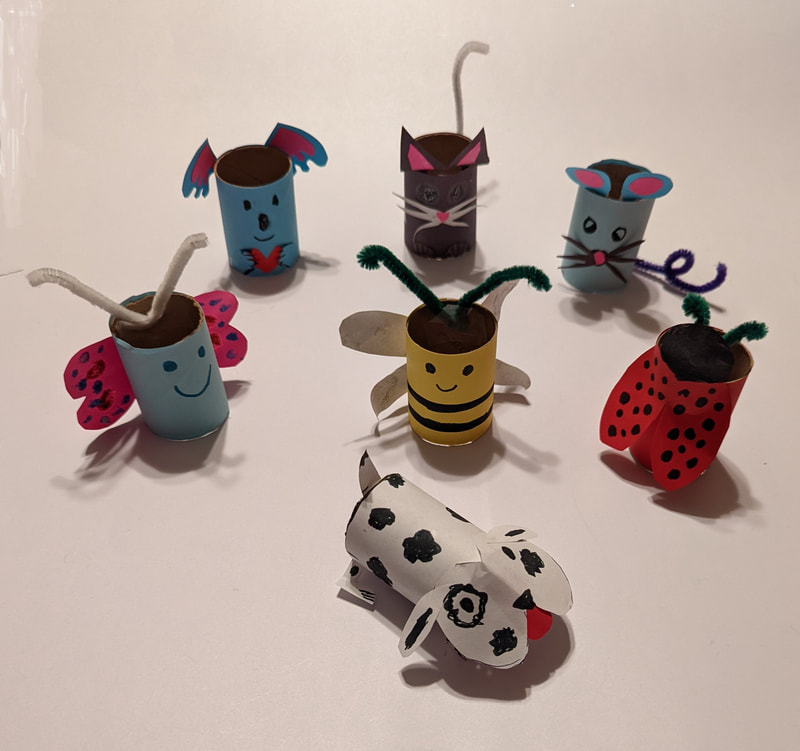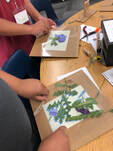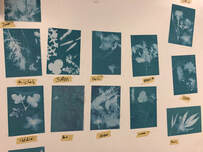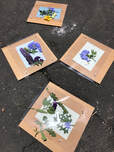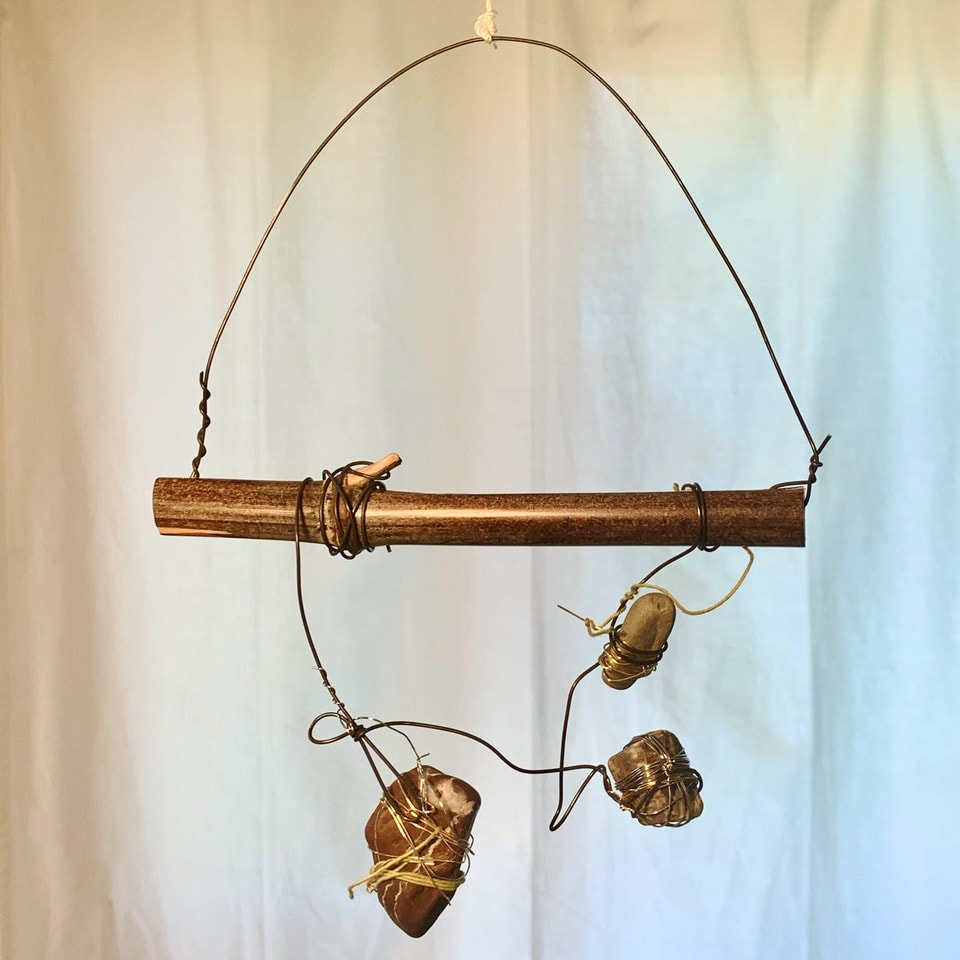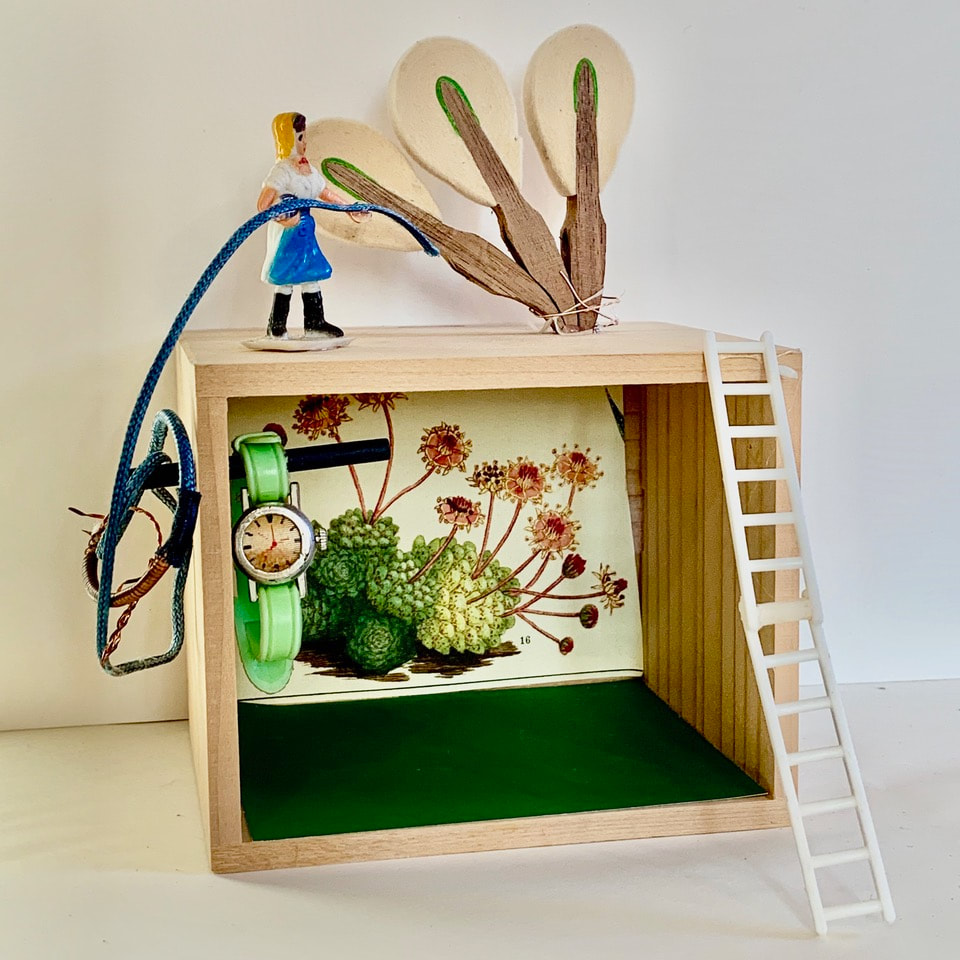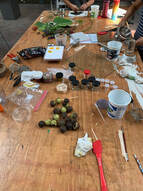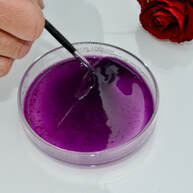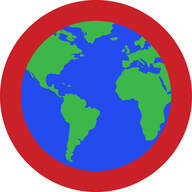Week 6: Art & Nature
July 24 - July 28
Instructor: Various
This week, campers will explore nature through an artistic lens. Nature is broadly defined as anything in the natural environment including plants, animals, earth, water, air, chemical & biological elements, single & multi-cell organisms, climate, geology, ecosystems, and more. Campers will learn about specific aspects of nature and express what they learn via multiple art mediums. Each daily instructor is planning a special journey for your campers!
July 24 - July 28
Instructor: Various
This week, campers will explore nature through an artistic lens. Nature is broadly defined as anything in the natural environment including plants, animals, earth, water, air, chemical & biological elements, single & multi-cell organisms, climate, geology, ecosystems, and more. Campers will learn about specific aspects of nature and express what they learn via multiple art mediums. Each daily instructor is planning a special journey for your campers!
Monday (July 24th): Plant Studies
Instructor: Eliane Bauer
9:00 am Housekeeping and intros
9:15 am Ice Breaker Activity: Leaf Rubbings
Description: Campers will take a close look at leaves and their structure by creating leaf rubbings.
Materials: Various Leaves (sturdy ones that don’t bruise easily), paper, pencils, color pencils, crayons
9:30 am Activity/Lesson: Seed, sprouting, and root observations and drawings
Description: Campers will observe different seeds and how they sprout differently.
They will note their observations and make drawings of what they see.
Materials: various seeds (beans work well, nothing too small), sprouted seeds, sprouts in hydroponic set up to observe
roots, paper, pencils
10:15 am BREAK
10:30 am Activity/Lesson: Sun Prints with Natural Elements
Description: Campers will explore another way to observe nature: through cyanotype (sun prints). Campers will use a
specially treated paper to create their own sun prints and see how this can help them observe nature.
Materials: Cyanotype paper, cardboard (larger than sun paper, to hold cyanotype paper in place and carry it around),
plastic sheet (larger than sun paper, to keep arrangement in place), push pins, water containers, natural elements
(leaves, seeds, weeds, twigs, etc.)
11:15 pm Maker Journals
Description: Campers will receive a Maker Journal to document their process and work over the course of the week.
We will review how to use the journals as well as the worksheets available to them.
Materials: Maker Journals, Salad Bar pages, pens/pencils
11:20 am Introduction to Guest Speaker
Description: Campers will get a quick introduction to our guest speaker and what we will learn about after lunch so
that they can prepare some questions.
Materials: Maker Journals, Salad Bar pages, pens/pencils
11:30 am LUNCH
12:15 pm Guest Speaker: Michele Guieu
Bio: Eco-artist Michele Guieu, lived close to San Jose for 12 years and has moved to Bend, Oregon, to create an art farm.
Photos
1:15 pm Transition into Tinker Time
Share back your work from the morning.
Brief reflection in Maker Journal and plan what you want to do during Tinker Time
1:00 pm TINKER TIME Intro to Tinker Journal
Optional Activity: Observational Drawings
Description: Campers can continue making observational drawings of various leaves and branches.
Materials: Various leaves and branches or other plants, paper, pencils
2:05 pm Share back what we made during Tinker Time.
2:15 pm Snack
2:30 pm Review of day and Camper assessment of activities
2:45 pm Clean Up
3:00 pm Camper Pick Up
Photos
Instructor: Eliane Bauer
9:00 am Housekeeping and intros
9:15 am Ice Breaker Activity: Leaf Rubbings
Description: Campers will take a close look at leaves and their structure by creating leaf rubbings.
Materials: Various Leaves (sturdy ones that don’t bruise easily), paper, pencils, color pencils, crayons
9:30 am Activity/Lesson: Seed, sprouting, and root observations and drawings
Description: Campers will observe different seeds and how they sprout differently.
They will note their observations and make drawings of what they see.
Materials: various seeds (beans work well, nothing too small), sprouted seeds, sprouts in hydroponic set up to observe
roots, paper, pencils
10:15 am BREAK
10:30 am Activity/Lesson: Sun Prints with Natural Elements
Description: Campers will explore another way to observe nature: through cyanotype (sun prints). Campers will use a
specially treated paper to create their own sun prints and see how this can help them observe nature.
Materials: Cyanotype paper, cardboard (larger than sun paper, to hold cyanotype paper in place and carry it around),
plastic sheet (larger than sun paper, to keep arrangement in place), push pins, water containers, natural elements
(leaves, seeds, weeds, twigs, etc.)
11:15 pm Maker Journals
Description: Campers will receive a Maker Journal to document their process and work over the course of the week.
We will review how to use the journals as well as the worksheets available to them.
Materials: Maker Journals, Salad Bar pages, pens/pencils
11:20 am Introduction to Guest Speaker
Description: Campers will get a quick introduction to our guest speaker and what we will learn about after lunch so
that they can prepare some questions.
Materials: Maker Journals, Salad Bar pages, pens/pencils
11:30 am LUNCH
12:15 pm Guest Speaker: Michele Guieu
Bio: Eco-artist Michele Guieu, lived close to San Jose for 12 years and has moved to Bend, Oregon, to create an art farm.
Photos
1:15 pm Transition into Tinker Time
Share back your work from the morning.
Brief reflection in Maker Journal and plan what you want to do during Tinker Time
1:00 pm TINKER TIME Intro to Tinker Journal
Optional Activity: Observational Drawings
Description: Campers can continue making observational drawings of various leaves and branches.
Materials: Various leaves and branches or other plants, paper, pencils
2:05 pm Share back what we made during Tinker Time.
2:15 pm Snack
2:30 pm Review of day and Camper assessment of activities
2:45 pm Clean Up
3:00 pm Camper Pick Up
Photos
Tuesday (July 25th): Wrapped Rock Mobiles and Power Animal Dioramas
Instructor: Amy Hibbs
Description
Students will enjoy two activities that challenge their imagination and dexterity while encouraging them to reflect on their personal qualities as they relate to the natural environment. In the morning students will make a mobile using found sticks, rocks, and wire. Though simple, mobiles are deceptively tricky and require careful focus on balance and the materials at hand. In the afternoon, students will create “Power Animal” Dioramas. Dioramas are an open stage for imagination and experimentation with composition and meaning. Reflecting on the qualities of animals that mirror qualities they see in themselves (or aspire to), students will make a miniature environment honoring the animals, and by extension, themselves.
9:00 am Housekeeping and intros
9:15 am Ice Breaker Activity: Introduction to Wrapped Rock Mobiles after briefest self- introduction.
I’ll show examples and do a brief demonstration.
9:30 am Activity/Lesson: Wrapped Rock Mobiles
Description: First, we go outside to locate some sticks and rocks.
Returning to the classroom, students use tools and wire to create their mobiles.
Materials: Sticks, rocks, Wire in various natural tones. The correct wire should be pliable but not too string-like. It must
hold its shape when bent so it holds the rocks in place, needle nose pliers, power drill, small scrap of wood to use with
power drill, small scraps of fabric or yarn
10:15 am BREAK
10:30 am Introduction to Power Animal Dioramas
11:00 am Activity: Power Animal Dioramas
Description: Creation of Power Animal Dioramas using found materials, natural materials, and collage.
After brief discussion of what it means to have a power animal, students choose an animal to represent themselves
or a quality they aspire to, then make a diorama around that creature.
Materials: various small boxes, gesso, acrylic paints in basic colors, brushes, palettes (paper plates are okay),
water containers, small unpainted wooden animals, collage papers, Glue (glue stick or Yes paste for collage)
11:30 am LUNCH
12:15 pm Continue Morning Activities
12:45 pm TINKER TIME
Continue working on Mobiles and Dioramas
2:15 pm Snack
2:30 pm Review of day and Camper assessment of activities
2:45 pm Clean Up
3:00 pm Camper Pick Up
Photos
Wednesday (July 26th): Paint from Plants
Instructor: Amy Hibbs
Description
This class introduces the fascinating and nearly limitless study of plant-based pigments and how they’re used to make paint. With simple methods and tools, we will extract juice and other pigmented materials from plants in the immediate environment and turn this juice into paint we can use with paper and brush. In addition to this basic process, students will experiment with mild acids, salts, and mordants to see how chemical changes affect the color and consistency of their paint. Because paint making is hard work, we will all share what we make and sort the results into a natural color wheel.
If time allows, we will set up some materials to steep in water to be used in Friday’s class
9:00 am Housekeeping and intros
9:15 am Ice Breaker Activity: Introduction to making paint from plants.
Talk about which pigments come from plants, which come from earth, which are made in a laboratory.
Bring Cochineal paint
9:30am Activity/Lesson: Paint from Plants
Description: First I will demonstrate how the process works. Then we will go outside and gather materials to make
paint from. I will also bring some plants that will yield some color. The emphasis is on curiosity and experimentation
(and safety).
Materials: See below for complete materials list
10:15 am BREAK
10:30am Activity/Lesson: Creation of paint from plants
Materials: Mini-prep or blender, Pipettes, Petri dishes, Stirring sticks, Mortar & pestles, small mesh Strainers,
Rubber spatulas, Kitchen knives, Cutting boards, Clippers, Scissors, Gloves, Mullers, Glass, Alum, Honey, Gum arabic,
Watercolor paper, coffee filters, funnel, brushes, water containers, small containers for bringing samples home,
a few 5-gallon buckets for waste
11:30 am LUNCH
12:15 pm Continue morning activity
12:45 pm TINKER TIME
Optional Activity: For Tinker Time, Amy will introduce the idea of Mordants and pH, both of which can change the color
and qualities of the paint. Students will have access to Alum, baking soda, and vinegar. We will also set up two jars to
steep in the sun with material that will become paint with Danielle’s class on Friday. One jar will contain ground oak galls,
the other walnut husks.
2:15 pm Snack
2:30 pm Review of day and Camper assessment of activities
2:45 pm Clean Up
3:00 pm Camper Pick Up
Photos
Thursday (July 27th): The Majesty and Beauty of Nature
Insturctor: Kim Mesa
9:00 am Warm Up Activity: Tootsie Roll Flowers
Description: Campers will make flowers using Tootsie Roll Pops, cupcake liners, twist ties (or wire), and masking tape,
scissors and a hole punch.
Materials: Tootsie Roll Pops, cupcake liners, twist ties (or wire), masking tape, scissors, hole punch
9:30 am Activity: Majestic Volcanoes
Description: A volcano is a rupture in the earth’s (or other planetary object’s) crust that allows hot lava, volcanic ash,
and gases to escape from a magma chamber below the surface. Campers will review various types of volcanic eruptions
and then create a model of the volcanic eruption of their choice.
Materials: Scissors, glue, construction paper (brown, red, yellow), pipe cleaners, fiber fill, glitter glue.
10:15 am BREAK
10:30 am Activity: Mobile Made of Natural Elements
Designed by Michele Guieu
Description: Using natural materials to make art and everyday objects, like baskets, are traditional around the world
in many different cultures. Campers will collect items (leaves, twigs, flowers, etc.) from around the school, as well as
having some available in the classroom. They will use the natural element to design and create a hanging mobile.
Materials: Natural elements including twigs & small branches, fine twine or fishing line, and beads.
Reference: Today in western cultures, we are used to using an array of different materials that are made through
an industrial process to make art (plastic beads, frames, photographs, soldering processes, industrial paint and dies, etc.).
As we consume more and more of these products around the world and as the population grows, some of the resources
are eventually going to become rare and even depleted, like some of the rare metals needed to make cellphones.
Watch this video about Andy Goldsworthy, an artist who uses only natural materials in his work:
www.youtube.com/watch?v=sngXz55b4bc
11:30 am LUNCH
12:15 pm Continue morning activity
12:45 pm TINKER TIME
2:15 pm Snack
2:30 pm Review of day and Camper assessment of activities
2:45 pm Clean Up
3:00 pm Camper Pick Up
Photos
Friday (July 28th): Papermaking
Instructor: Danielle Siembieda
9:00 am Housekeeping and intros
9:00 am Warm-Up Activity: Where does paper come from?
Sharing paper examples, talking about other sources of paper, what does sustainability mean?
9:30 am Activity: Papermaking Preparation
Organize paper production lineup
Group 1: Sourcing - Gathering paper and materials
Group 2: Preparing - Tearing up and preparing materials
Group 3: Set up paper-making racks
Materials: Used paper, magazines, leaves, Old picture frames, no glass needed. (1 per student or 1 per pair of students if
needed), Hardware cloth or screen mesh, window screening, Staple gun, Wirecutters, Scissors, Blender, Duct tape,
Paper towels, Sponges, Boards, Rolling pins, Boards, Poo Paper Sample pack (Optional), Seeds (Optional)
10:15 am BREAK
10:30 am Activites: Papermaking
Students will get to blend and pour out paper
Each group will rotate to participate in each part of the process
Materials: Bowls, Hair dryer, Clothes
11:30 am LUNCH
12:15 pm Continue morning activity
12:45 pm TINKER TIME – ONLY if weekly project is complete
Suggested Activity: Paint your paper and tinker time
Students will get to use pigments and paints made with instructors earlier in the week to apply onto paper.
It is ok if they are still wet. Use hairdyer to fast dry anything that is needed.
2:30 pm Daily Camper Assessment
Weekly Camper Survey
2:45 pm Snack
3:00 pm Clean Up and Prep for Showcase
3:30 pm Student Showcase
4:30 pm Camper Pick Up
Photos
